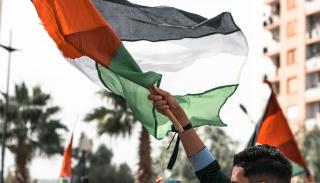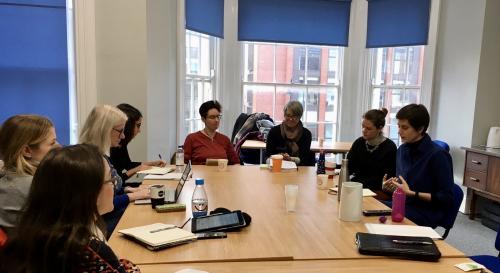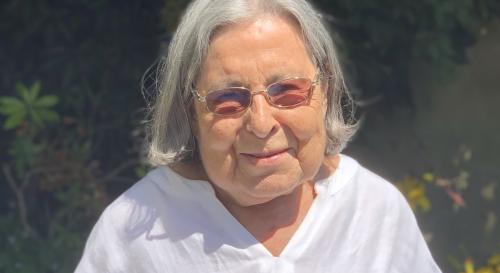
Breadcrumbs navigation
Affective sovereignty: A decolonising politics of emotion in Palestine
In this short video extract, Jamal Nabulsi discusses his key arguments from his new Review of International Studies article - Affective sovereignty: A decolonising politics of emotion in Palestine
Want to know more? You can read the full article at DOI: https://doi.org/10.1017/S0260210525100880
This is an open access article, however BISA members receive access to RIS (and to our other journal European Journal of International Security) as a benefit of membership. To gain access, log in to your BISA account and scroll down to the 'Membership benefits' section. If you're not yet a member join today.
Abstract
Despite ongoing attempts to fragment and eliminate the Palestinian people, Palestinians persist on their lands and continue to uphold their right to return home. In this article, I suggest that vital to this persistence are Palestinian feelings of belonging to and longing for Palestine. Together, these constellations of feeling form what I call affective sovereignty. Through this concept, I argue that such feelings constitute a sovereign Indigenous Palestinian claim to the land. That is, a Palestinian Indigenous sovereignty is sustained, affirmed, and reproduced in part through feeling. I track forms of affective sovereignty through the practices of Palestinian graffiti and hip-hop music. I find in these aesthetic practices four interrelated themes that together express an affective sovereignty. First, I analyse expressions of belonging to the land of Palestine. Next, I turn to expressions of belonging to the Palestinian people, particularly those that express unity across the geographic fragments of Palestine. Third, I analyse expressions of longing for Palestine from the condition of exile. Finally, I explore how these feelings are drawn into more directly resistant expressions of Palestinian sovereignty, suggesting that affective sovereignty forms the molten core of Palestinian resistance.
Photo by Houssem Bouaza on Unsplash


